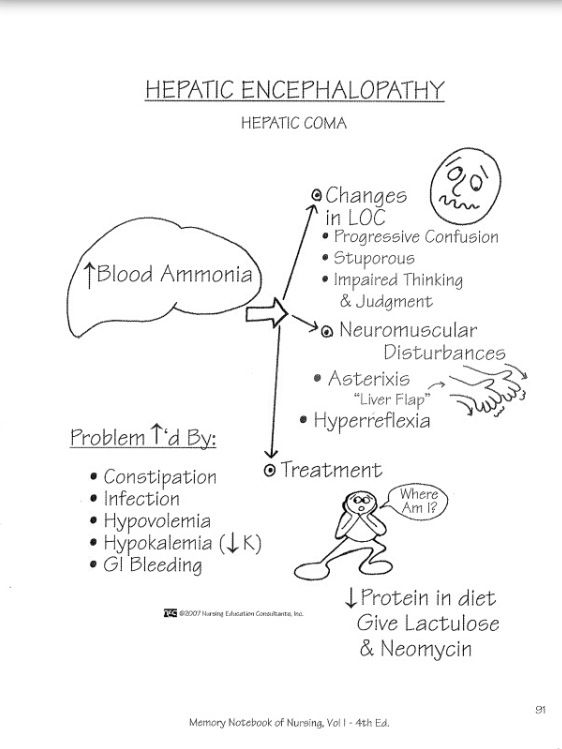Asterixis
Signs of cerebellar dysfunction are unusual in patients with cerebellar infarcts or. The wrist muscles relax and recontract involuntarily which causes the wrist tremor.

Read More And Download Book Immediately Hand Flapping Of Asterixis Via Interconsulta Online Search Asterixis To Nursing Books Medical Students Med Student
Up to 10 cash back In 1949 asterixis was first described in patients with hepatic encephalopathy.

Asterixis. A motor disorder characterized by jerking movements as of the outstretched hands and associated with various encephalopathies due especially to. Asterixis also known as hepatic flap or uraemic flap is an important sign of metabolic encephalopathy that occurs due to dysregulation of the diencephalic motor centers in the brain that regulate innervation of muscles responsible for maintaining position. Classification and evaluation of myoclonus.
The examination for asterixis is done in the respiratory and gastrointestinal exams. Signs of cerebellar dysfunction are unusual in patients with cerebellar infarcts or. Asterixis is the most widely known motor abnormality in hepatic encephalopathy.
Quadriplegia suggests a midline brain stem lesion. Asterixis is a nonspecific sign of bilateral cortical dysfunction. Inability to maintain a neutral wrist position or a fixed position.
Asterixis is a neurological disorder that causes a person to lose motor control of certain areas of the body. Asterixis is a nonspecific sign of bilateral cortical dysfunction. Muscles often in the wrists and fingers although it can happen in other areas of.
It can affect both sides bilaterally or it can affect only one side. Called liver flap because of its occurrence in coma associated with liver disease but also observed in other conditions. Asterixis is a significant yet poorly understood clinical sign and is part of the West Haven Criteria used to grade the severity of hepatic encephalopathy as it seems to be a relatively sensitive sign of the disease but is non-specific.
Myoclonus is a clinical sign that is characterized by brief shock-like involuntary movements caused by muscular contractions or inhibitions 1. Asterixis is a tremor or movement disorder characterized by movement of hands and wrists that resembles flapping of wings. It could be something relatively easy like switching medications to a less powerful type.
To elicit asterixis flapping tremor the patient. But in the case of something like brain injury or liver failure it really depends on. Asterixis is an involuntary tremor of the wrist when it is flexed away from the palm called dorsiflexion.
Medical definition of asterixis. Quadriplegia suggests a midline brain stem lesion. Normally the muscles are able to stay contracted but people who have the condition cannot sustain the muscle contraction.
Unfortunately treatment for asterixis all depends on what is causing it in the first place and how much damage the underlying cause has done. This motor disorder is myoclonus characterized by muscular inhibition whereas muscle contractions produce positive myoclonus1 Initially described in 1949 by James Foley and Raymond Adams to describe the. Liver Or Kidney Transplant Dreamstime.
Hemiparesis indicates a lesion of the upper motor neuron paths and may suggest either a contralateral cortical or paramedian brain stem lesion. ASTERIXIS which is commonly known as the liver flap was first demonstrated by Adams and Foley1 in 1949 as a neurologic abnormality characteristic of. Asterixis is a disorder where a person loses motor-control of various body parts causing the muscles in the region to relax abruptly.
Asterixis is caused by disorders in the motor function leading to involuntary arrhythmic movements of the hands. It was quickly recognized that this phenomenon also occurs in other generalized encephalopathies and sometimes results from structural brain lesions. Asterixis aster-iksis a motor disturbance marked by intermittent lapses of an assumed posture as a result of intermittency of sustained contraction of groups of muscles.
Arrhythmic jerks or movement of the hands wrists and fingers with outstretched hands. Asterixis is associated with several different neurological conditions that can also cause confusion sleep problems tremors and personality changesPatients with asterixis may benefit from the treatments outlined below. Asterixis is an important clinical sign and an invaluable clue to a number of underlying serious diseases.
Medical definition of asterixis. It is not pathognomonic of any condition and therefore a list of possible differential. Il sagit bien dun Astérixis flapping tremor Caractérisé par la chute brutale et de brève durée du tonus des muscles extenseurs de la mainObservé lors.
Asterixis is associated with several different neurological conditions that can also cause confusion sleep problems tremors and personality changesPatients with asterixis may benefit from the treatments outlined below. Asterixis is a clinical sign that describes the inability to maintain sustained posture with subsequent brief shock-like involuntary movements. This paper is a study of asterixis in the general neurology clinic and on the inpatient neurology consultation.
Tremors in the hands with interrupted muscle contraction causing postural lapses with a frequency of 3 to 5 Hz. It follows that the treatment of asterixis is the treatment of the. Common causes of asterixis or flapping tremor are CO2 retention hyperca.
Asterixis is a motor disorder the symptoms of which include. Asterixis is an important clinical sign and an invaluable clue to a number of underlying serious diseases. Hemiparesis indicates a lesion of the upper motor neuron paths and may suggest either a contralateral cortical or paramedian brain stem lesion.
Muscular contractions produce positive myoclonus whereas muscular inhibitions produce negative myoclonus ie asterixis. Treatment modalities for Asterixis are planned based. Asterixis is a disorder of motor control characterized by an inability to actively maintain a position and consequent irregular myoclonic lapses of posture affecting various parts of the body independently It is a type of negative myoclonus characterized by a brief loss of muscle tone in agonist muscles followed by a compensatory jerk of the antagonistic muscles.
Asterixis is a nonspecific sign of bilateral cortical dysfunction. Problems with the liver and kidneys can cause asterixis. It is not pathognomonic of any condition and therefore a list of possible differential diagnoses tailored to the patients clinical presentation must be thought of.

Some Signs And Symptoms Of Acidosis Here Are Some Signs And Symptoms Of Acidosis A State Of Chronic Fatigue Syndrome Symptoms Health Site Chronic Fatigue

Rightatrium Asterixis Also Called The Liver Flap Is A Tremor Of The Hand When The Hand Is Extended Nursing Mnemonics Nursing Assessment Nursing Students

Hepatic Encephalopathy Hepatic Coma Nursing Notes Nurse Nursing Mnemonics
Pin By Miroslawa Bodnar On Pa Okay Gesture Drowsy Tremor

Pin By Janet Green On Nursing Tips Nursing School Tips Nursing School Survival Transplant Nurse

Pin By Great Wolf On Cirrhosis Reye Syndrome Reticular Activating System Muscle Tone

Ddf4ac34dbabe6df7fc3db03e65f1092 Jpg 640 960 Pixels Nursing School Studying Nursing Study Tips Nursing School Notes

Asterixis Aka Flapping Tremor Nursing Assessment Osteopathy Med Surg

Asterixis Wikipedia In 2021 Chronic Kidney Failure Wilson S Disease Liver Failure

Asterixis Aka Flapping Tremor Nursing Assessment Osteopathy Med Surg

Pin On Gastro Tips Medical Training

Asterixis Alice In Wonderland Artwork Old Cartoons Vintage Cartoon






